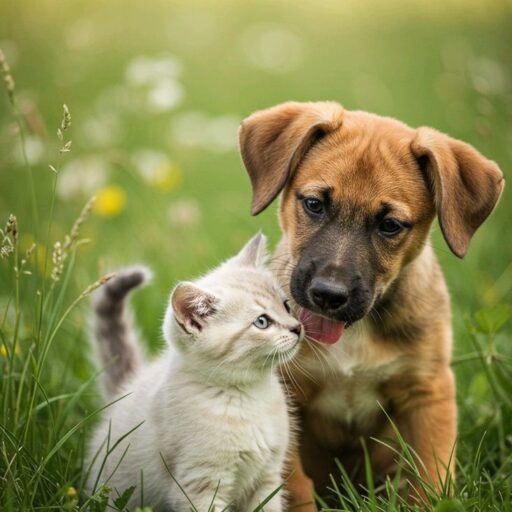When people think of pet neglect in the UK, the usual suspects like dogs and cats come to mind. But the reality is more complex—and surprising. While dogs and cats sadly do face abandonment and neglect, they are not the most at-risk pets in the country. According to multiple animal welfare reports, small pets like rabbits, guinea pigs, and hamsters are statistically the most neglected and abandoned pets in the UK.
This post digs into the truth behind pet neglect in the UK, busts common myths, and highlights what’s really going on behind the closed doors of households that take in (and sometimes forget about) these misunderstood animals.
Understanding Pet Neglect in the UK: The Bigger Picture
Pet neglect isn’t just about abandonment. It includes:

- Lack of proper food and water.
- Inadequate shelter.
- Lack of companionship for social species.
- Ignoring medical needs.
- Failing to provide adequate space and stimulation.
In the UK, the RSPCA receives thousands of calls annually about pet neglect—and not all of them are about dogs and cats. Small pets, especially rabbits, top the charts in being overlooked, misunderstood, and often left to suffer in silence.
The Forgotten Victims: Rabbits and Small Pets
The Most Neglected Pet: The Rabbit
According to the RSPCA and animal welfare groups like Rabbit Welfare Association & Fund (RWAF), rabbits are consistently identified as the most neglected and misunderstood pet in the UK.
Key facts:
- The RSPCA estimates tens of thousands of rabbits are neglected, abandoned, or mistreated every year.
- Rabbits are still widely purchased on impulse, especially around Easter, only for owners to realize they require far more care and space than anticipated.
- Many rabbits are kept in hutches that are far too small, with little to no opportunity to exercise, socialize, or exhibit natural behaviours.
Why are rabbits neglected?
- Myths and misinformation: Many people still see rabbits as “starter pets” for children. This is false. Rabbits have complex needs, require social interaction (they are highly social animals), and need a lot of space.
- Lack of awareness: Owners often underestimate their lifespan (up to 10-12 years) and overestimate how easy they are to care for.
- Low perceived value: Because rabbits are often cheap to buy and readily available, people tend to devalue them emotionally.
Other Small Pets at Risk
Guinea pigs:
Though not as dire as rabbits, guinea pigs also suffer from misunderstanding, especially regarding their social needs. People often keep a single guinea pig, unaware that they are herd animals and need companions.
Hamsters and other rodents:
Hamsters may appear hardy, but they also suffer neglect through poor cage setups, improper diets, and lack of enrichment. Their nocturnal nature leads many owners to assume they’re “lazy” or “boring.”
Why Are Small Pets More Neglected Than Dogs or Cats?
Dogs and cats benefit from higher public awareness, stronger legal protections, and a more established rescue and adoption infrastructure. By contrast, small animals are often:
- Seen as disposable.
- Bought for children without proper research.
- Forgotten in the home because they make less noise or demand less visible attention.
- Overlooked by veterinary services and animal charities, which still focus mainly on cats and dogs.
The 2022 PDSA Animal Wellbeing (PAW) Report highlighted that while dogs and cats are more visible victims of neglect, small pets often suffer silently, behind closed doors.
The Impact of Neglect on Small Pets
Pet neglect has serious emotional and physical consequences, including:
- Loneliness and depression: Rabbits and guinea pigs need companionship and can become depressed if left alone.
- Obesity and health issues: Small cages limit exercise, leading to obesity, joint issues, and early death.
- Dental disease: Rabbits and rodents need constant chewing to maintain healthy teeth. Poor diet and lack of stimulation lead to severe dental issues.
- Stereotypical behaviour: Animals kept in inadequate environments develop abnormal, repetitive behaviours, a sign of extreme stress.
The Law and Small Pet Welfare in the UK
Under the Animal Welfare Act 2006, all pets—including small animals—are protected by law. Owners must provide:
- A suitable living environment.
- A proper diet.
- The ability to exhibit normal behaviour.
- Companionship if needed.
- Protection from pain, suffering, and disease.
Yet, enforcement for small pets lags behind dogs and cats. Prosecutions for rabbit neglect are rare, partly due to low reporting and the perception that they are less valuable.
What Can Be Done? How the UK Can Tackle Small Pet Neglect
1. Education, Not Assumptions
Public awareness campaigns need to focus more on small pet welfare, targeting schools, pet shops, and online platforms where misinformation still runs rampant.
2. Better Regulation of Pet Sales
Impulse buying fuels neglect. Tightening regulations on the sale of small pets, ensuring they come with mandatory welfare information, could reduce neglect rates.
3. Rescue, Not Retail
Promoting adoption over buying from pet shops helps reduce the cycle of neglect and overbreeding.
4. Enforcing and Updating Welfare Standards
Stricter enforcement of existing laws and updating hutch size recommendations could push owners toward better standards.
Conclusion: Rethinking What It Means to Be a Responsible Pet Owner
Dogs and cats get the spotlight, but it’s time the UK recognized the silent suffering of rabbits and other small pets. They aren’t toys for children or background pets. They are intelligent, social, sensitive animals deserving of the same respect and care as any dog or cat.
Until the UK shifts its mindset and gives small pets the attention they deserve, rabbits will sadly remain the country’s most neglected pet.
Frequently Asked Questions (FAQs)
What is the most neglected pet in the UK?
Rabbits are widely considered the most neglected pets in the UK due to misunderstanding, poor housing, and lack of proper care.
Why are rabbits so neglected?
They are often bought impulsively, seen as “easy pets,” and kept in inappropriate conditions, leading to severe welfare issues.
How can I help reduce small pet neglect?
Educate yourself and others, support rescue organizations, and advocate for better welfare laws and standards.

